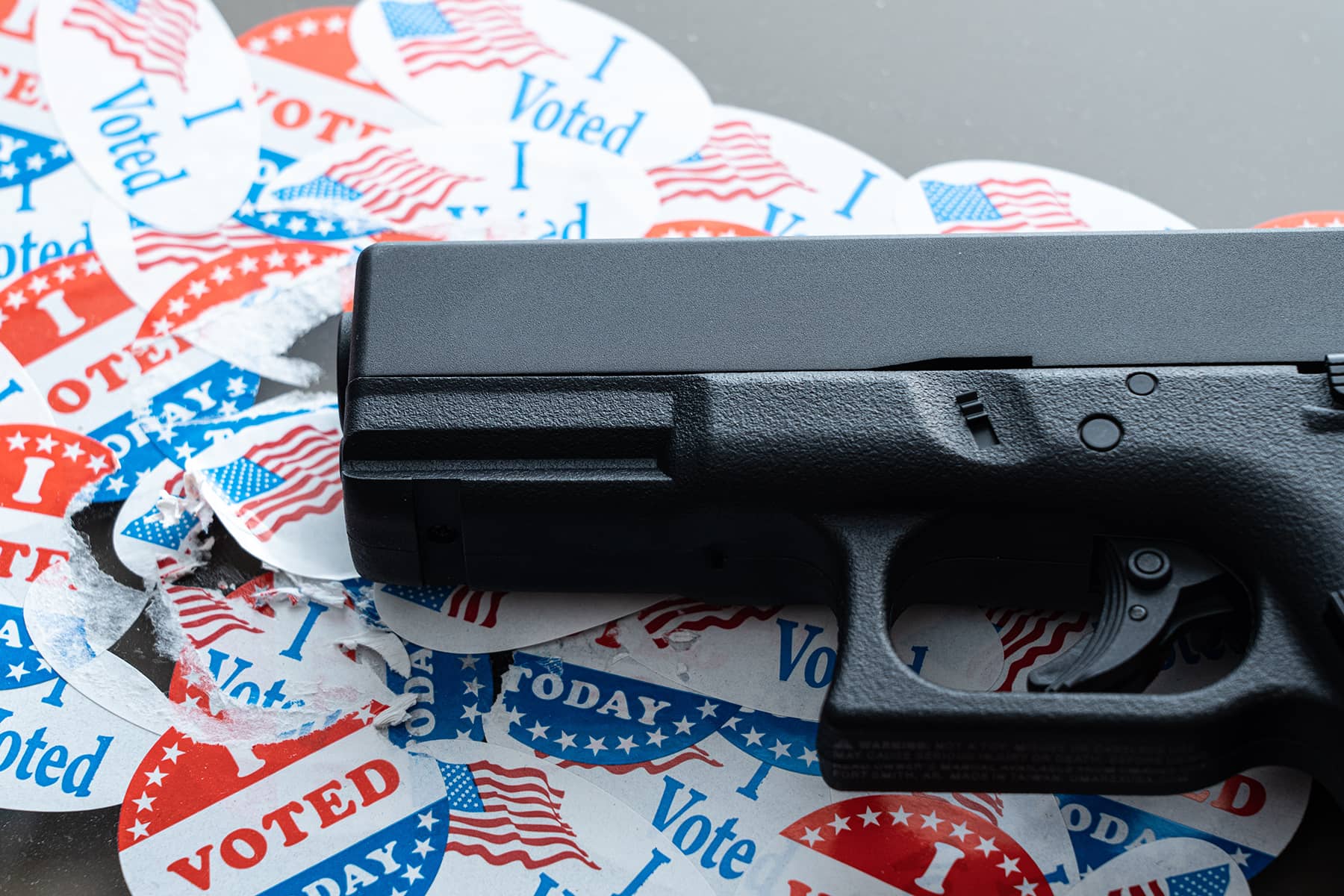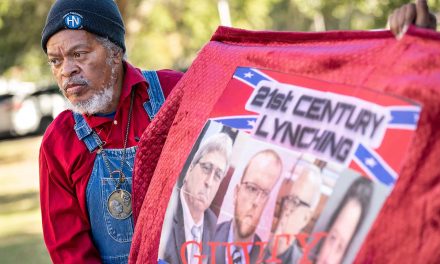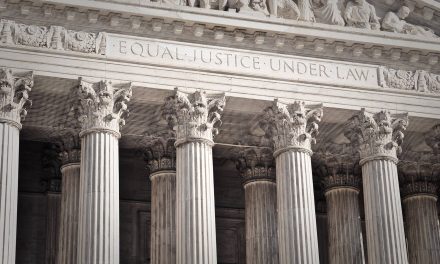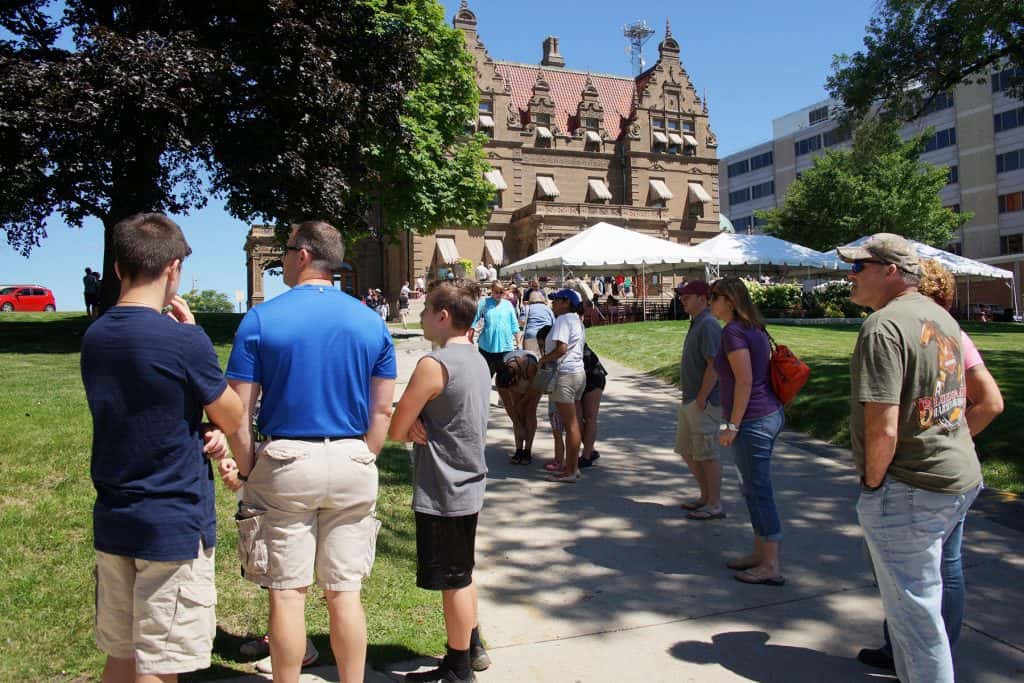
Over the October 24th weekend, the Maricopa County Elections Department announced that two people, both armed and dressed in tactical gear, stationed themselves near a ballot drop box in Mesa, Arizona. They left when law enforcement officers arrived. At least two voters later filed complaints of voter intimidation, both complaining that they were filmed dropping off ballots. One complained of being accused of “being a mule,” a reference to people who are allegedly paid to gather ballots and stuff drop boxes for Democratic candidates.
Maricopa County Board of Supervisors Chairman Bill Gates and Recorder Stephen Richer issued a statement: “We are deeply concerned about the safety of individuals who are exercising their constitutional right to vote and who are lawfully taking their early ballot to a drop box … [V]igilantes outside Maricopa County’s drop boxes are not increasing election integrity. Instead they are leading to voter intimidation complaints.”
The presence of armed vigilantes outside of voting places is a scene directly out of the 1876 “redemption” of the South.
During the Civil War, President Abraham Lincoln and the fledgling Republican Party used the federal government to defend equality before the law and to expand opportunity for ordinary Americans. After the war, they included the newly emancipated southern Black population in their vision of an economy based on legal equality and free labor. When White southerners tried to force their Black neighbors back into submission, Congress passed the 1867 Military Reconstruction Act, establishing the right of Black men to vote for delegates to write new state constitutions.
White southerners who hated the idea that Black men could use the vote to protect themselves terrorized their Black neighbors to keep them from voting. Pretending to be the ghosts of dead Confederate soldiers and calling themselves the Ku Klux Klan, they dressed in white robes with hoods to cover their faces and warned formerly enslaved people not to show up at the polls.
Members of the Ku Klux Klan tried to stop southern Republicans — both Black and White — from voting in favor of the new state constitutions. They killed nearly a thousand Unionists before the 1868 elections, terrorizing their neighbors and undercutting democracy in the South.
Even more effective than Ku Klux Klan ropes and clubs and bullets in the long run, though, were the new tactics to which White Democrats turned when they realized that the violence of the Ku Klux Klan simply hardened Republican resolve. They insisted that government policies promoting black equality were simply a redistribution of wealth as poor men — especially poor Black men — voted for lawmakers who would agree to fund roads and schools and hospitals with tax money. In the postwar South, the people most likely to own taxable property were White men.
Black voting, they insisted, was “Socialism in South Carolina.”
In 1876, “Redeemers” set out to put an end to the southern governments that were elected in systems that allowed Black men to vote. “Rifle clubs” held contests outside Republican political rallies, “Red Shirts” marched with their guns in parades.
Their intimidation worked. Democrats took over the South and created a one-party system that lasted virtually unbroken until 1965. Without the oversight that a healthy multiparty system provides, southern governments became the corrupt tools of a few wealthy men, and the rest of the population fell into a poverty from which it could not escape until the federal government began to invest in the region in the 1930s.
The great triumph of Movement Conservatives in the 1980s was to convince Republican voters to ditch the ideology of their founding and instead embrace the ideology of the old Confederacy.
After World War II, the vast majority of Americans in both parties agreed that the government should protect equality before the law and promote equal access to resources. That system gave us highways, business regulation, world-class universities, Social Security, Medicare, Medicaid, clean air and water, labor protections, and a narrowing gap between rich and poor.
But the Supreme Court’s 1954 Brown v. Board of Education decision opened the way for those opposed to the so-called liberal consensus to claim that White tax dollars were paying for Black benefits. After the 1965 Voting Rights Act and the subsequent shift of Black voters to the Democratic Party, Republicans increasingly accused Black voters of looking for handouts.
By 1980, Ronald Reagan made it to the White House with stories of a Black “welfare queen,” promising to put money back in the pockets of taxpayers. After the Democrats passed the 1993 National Voter Registration (Motor Voter) Act, Republicans began to insist that Democrats won only by cheating. They began to rewrite election laws to make it harder for Democratic-leaning populations to vote.
And now, we are in the next stage of that pattern: Republicans are using intimidation to keep Democrats from voting. In addition to the direct intimidation in Arizona, Florida governor Ron DeSantis’s new Office of Election Crimes and Security in August arrested 19 people who had been assured by state officials that they could vote; Georgia Republicans are launching mass challenges to Democratic voters, overwhelming election offices; and in several states, pro-Trump activists have hounded election officials out of office.
If we continue in this direction, we already know how it turns out: with a corrupt one-party government that favors an elite few and mires the rest of us in a world without recourse to legal equality or economic security.
It does not have to be this way, of course. At our most successful moments, Americans have backed not the vision of the Confederates but that of Lincoln, working to create a government of laws, not of men, and of equal access to opportunity for all.
Stеvе Hеаp
Letters from an Аmerican is a daily email newsletter written by Heather Cox Richardson, about the history behind today’s politics














